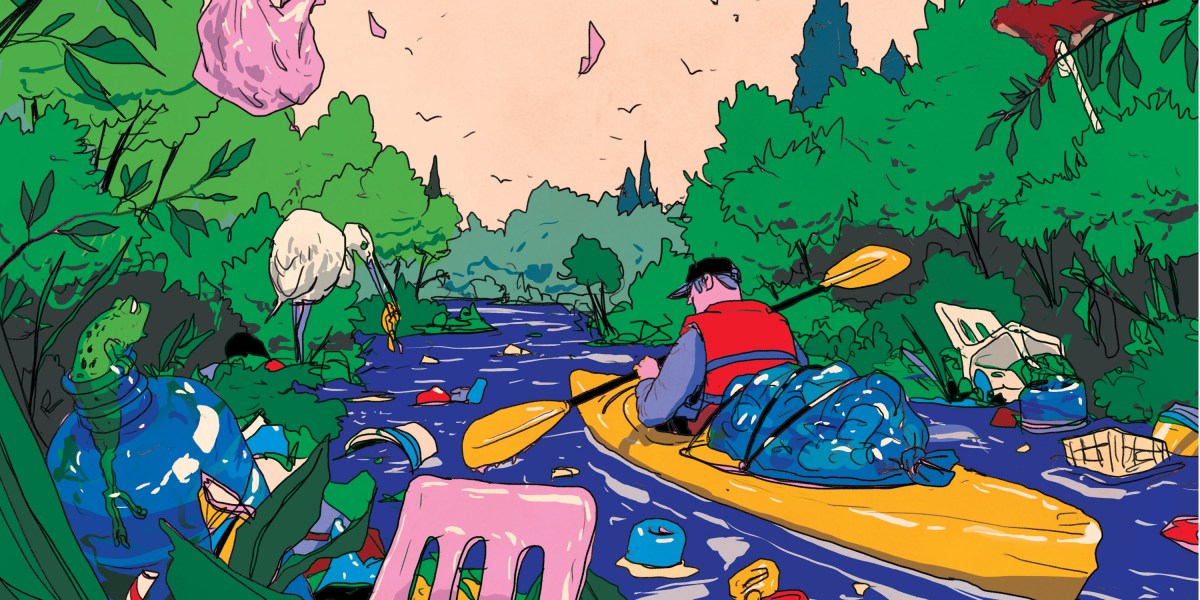Some states, although, have instituted insurance policies that truly hinder progress. Business lobbyists are more and more serving to to institute state-level legal guidelines that stop bans or limits on using plastics, particularly plastic baggage. Over a dozen states presently have preemptive legal guidelines on the books to stop ordinances limiting plastics, although among the identical states are additionally attempting to move anti-preemption legal guidelines.
Basically, to resolve the plastic air pollution disaster, society should tackle the basis drawback: plastics are shockingly worthwhile and low-cost.
A method to enhance recycling—and forestall undesirable well being results and environmental issues—can be to simplify and standardize the method of plastic manufacturing, Walker-Franklin says. Presently, greater than 10,000 chemical substances are used within the manufacturing of plastics, and upward of three,200 have “a number of hazardous properties of concern,” with the potential to hurt people and wildlife, in line with UNEP. Little or no or nothing is understood in regards to the well being results or primary properties of 1000’s extra.
One other approach to enhance recycling can be to discover a method to course of blended polymers into helpful supplies as a substitute of getting to type every little thing first. One promising method, described in an October 2020 examine coauthored by Julie Rorrer, then a researcher at MIT, can course of polypropylene and polyethylene into propane. One other course of, described in a examine printed in Science the identical month, can break down mixtures of frequent shopper plastics and re-form them right into a bioplastic, partly through the use of an engineered soil bacterium.
Others dream of a day when microbes might be used to recycle or clear up all this waste. One French biotechnology firm, Carbios, opened a pilot plant in September 2021 to interrupt down and recycle PET utilizing an engineered type of an enzyme first found in compost; it’s presently constructing a full-scale facility as a result of open in 2025. In concept, one of these recycling might be really round, because it wouldn’t require the excessive warmth that usually causes a lot of the degradation seen with recycled plastics.
A microbe found in Japan in 2016, referred to as Ideonella sakaiensis, produces two different enzymes that may break down PET. This microbe is very intriguing as a result of it’s the first one recognized that may dwell solely upon plastic as a meals supply. MIT researcher Linda Zhong-Johnson is working to create extra environment friendly variations of the enzymes by tinkering with microbial genes. Thus far, one mutation she has recognized creates an enzyme that seems to be as much as 30% extra environment friendly than its authentic wild kind.
Decreasing demand
Basically, to resolve the plastic air pollution disaster, society should tackle the basis drawback: plastics are shockingly worthwhile and low-cost as a result of polymer producers don’t pay for the ample hurt they trigger. Any resolution would require coverage and behavioral modifications small and enormous.
For instance of the previous, policymakers in Washington, DC, instituted a five-cent cost on plastic baggage that started in 2010. Estimates recommend that the variety of baggage used shortly dropped—by greater than half within the months after it was instituted—and the amount present in native waterways dropped between 30% and 70% thereafter. Seemingly tiny modifications like this may add as much as cut back demand and reduce air pollution. In the meantime, a world EPR scheme can be an instance of a significant shift, and the UN course of is looking for different huge modifications to the established order.
After all, such modifications might be tough, however they are often instituted in gradual ways in which don’t damage companies, Boachie says: “My hope emanates from the truth that what we’re speaking about just isn’t one thing that can impede the expansion and success of any firm.” Quite the opposite, he provides, creating incentives for alternate options will spur innovation and create new jobs.
Lots of such innovation will likely be wanted to reverse conditions like what I noticed within the Connecticut salt marsh. At one level we stumbled on a few osprey nests from which plastic strands billowed, unwittingly collected by the birds as they constructed their nests. Later, we discovered a vinyl firehose lodged intractably within the muck between oysters. I couldn’t pull it out, nor might I reduce into it with a small pocketknife. We reluctantly left it behind.
Douglas Foremost is a journalist and former senior editor and author at Nationwide Geographic.

